Use this list of vegetarian protein options to help cover the protein needs of your kids and yourself—whether you’re vegetarian or just looking for ways to have more satisfying plant-based meals in your rotation. The good news? You probably already eat many of these regularly!
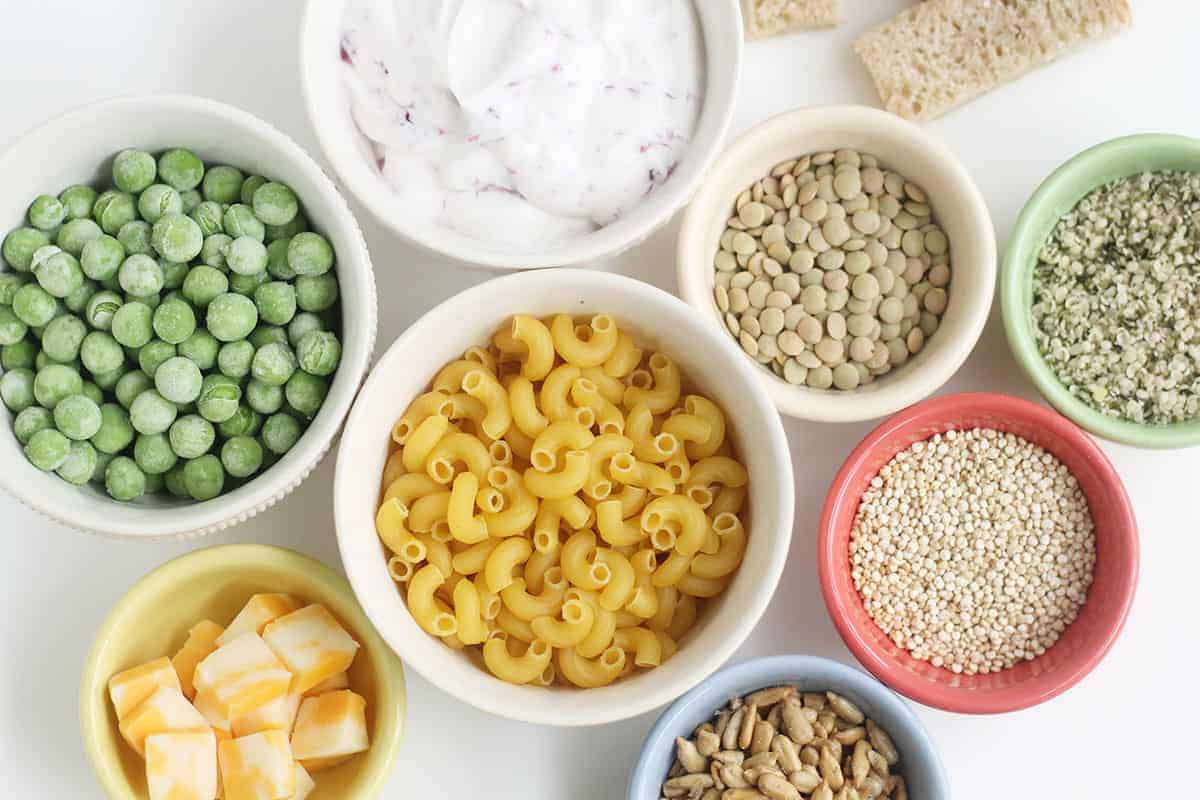
Vegetarian Protein Options
It can help to think through protein options when serving meals to kids to make sure that they get the nutrients they need, but also to make sure that their meals are filling.
Kids usually get plenty of protein without much effort on our part, but we may have to try a little if we take meat out of the equation.
Included here are accessible, easy-to-find vegetarian protein options. I tried my best to include as many kid-friendly ones as possible.
(You may like my Master List of Vegetarian Meals and Protein Snacks for Kids.)
Table of Contents
- Vegetarian Protein Options
- Vegetarian Protein List
- Vegan Plant-Based Protein
- Pescatarian Protein Options
- How much protein do my kids need?
- Do my kids need protein powder?
- Can we get the nutrients we need from plant-based protein?
- Nutrients that May Be Deficient on a Vegetarian Diet
- Best Vegetarian Meals for Kids
- Best Tips for Plant-Based Protein and Kids
Your toddler won’t eat? Help is here!
Sign up for our email updates to get tips and ideas sent to your inbox.
Vegetarian Protein List
Here’s a look at vegetarian protein sources that you can incorporate into your family’s diet.
- Almond butter
- Beans (black beans, pinto beans, chickpeas, red beans)
- Cheese
- Cottage cheese
- Hemp seeds
- Hummus
- Kefir
- Edamame beans
- Eggs
- Lentils
- Milk, cow’s
- Milk, plant milk with pea protein (like Ripple or Silk Nut Milk)
- Milk, soy
- Peanut butter
- Pasta (bean, lentil, and quinoa, along with regular wheat pastas)
- Peas
- Protein Powder
- Pumpkin seeds
- Quinoa
- Split peas
- Sunflower seed butter
- Tempeh
- Tofu
- Yogurt, drinkable
- Yogurt
- Yogurt, Greek
- Veggie burgers
- Whole grains
TIP: These Vegetarian Lunch ideas may help, too.
Vegan Plant-Based Protein
If you remove dairy and eggs from this list, you have fewer options but still solid ones. (I’m not recommending that kids follow a vegan diet, especially since it can be hard to make sure they are getting enough iron, vitamin D, and calcium. I’m just sharing in case you find this information helpful.)
If your kids are vegan, talk to your pediatrician about a multivitamin.
- Almond butter
- Beans (black beans, pinto beans, chickpeas, red beans, etc)
- Beyond Meat-type meat substitutions
- Hemp seeds
- Hummus
- Edamame beans
- Lentils
- Milk, plant milk with pea protein (like Ripple or Silk Nut Milk)
- Milk, soy
- Nondairy cheese
- Nondairy yogurt
- Peanut butter
- Pasta (bean, lentil, and quinoa, along with regular wheat pastas)
- Peas
- Pumpkin seeds
- Quinoa
- Split peas
- Sunflower seed butter
- Tempeh
- Tofu
- Veggie burgers
- Whole grains
TIP: The protein content in nondairy substitutions for things like cheese, yogurt, and milk ranges widely, so compare labels when you’re shopping.
Pescatarian Protein Options
If your family eats fish, here are some low-mercury options to consider. These aren’t technically vegetarian, but they can be nutritious protein options if you’re decreasing the amount of meat you serve or you enjoy fish.
- Fish sticks
- Flounder
- Tilapia
- Trout
- Tuna, canned
- Tuna, fresh
- Salmon, canned (like in my Salmon Patties)
- Salmon, fresh
- Scallops
- Shrimp
- Whitefish
How much protein do my kids need?
I have a whole post on protein needs for kids, but a simple way to look at it is to add one source of protein in most meals or snacks and you’ll easily hit their recommended intake. You don’t need to go overboard.
Do my kids need protein powder?
Short answer? No, not usually. If I’m making myself a smoothie and plan to add protein powder (which helps to keep me full longer), I remove a portion for the kids before I add it in.
Protein powders usually have a lot of ingredients that little kids just don’t need, including the extra protein. Kids tend to get plenty from regular food.
It’s fine if you make a smoothie with protein powder and the kids have some though—you just don’t need to go out of your way to do it.
TIP: Check out this protein shake for kids that’s made without protein powder.
Can we get the nutrients we need from plant-based protein?
Yes. This is the recommendation from the American Academy of Pediatrics: “As a general guideline, his protein intake should come from more than one source, combining cereal products (wheat, rice) with legumes (dry beans, soybeans, peas), for example; when eaten together, they provide a higher quality mixture of amino acids than if either is consumed alone.”
So Pasta with Peas, toast with peanut butter, oatmeal with hemp seeds, and hummus with crackers would be examples of how to do that.
Nutrients that May Be Deficient on a Vegetarian Diet
Vegetarians sometimes consume insufficient amounts of calcium and vitamin D if they remove milk products from their diet.
- Iron: Iron is most readily present in meat, so vegetarians sometimes have an inadequate iron intake. From the AAP: “Your pediatrician may recommend iron supplements, too, although your child can improve his absorption of the iron in vegetables by drinking citrus juice at mealtime.” Find more iron sources here.
- Calories: Be sure to add enough healthy fats to their food to help them get their needed calories.
- B-12: To ensure adequate B-12, look for fortified cereals like Cheerios.
- Calcium: If you remove dairy and milk products, your kiddo may need a calcium supplement. (It’s in some vegetables, but not a lot.) And you can review this list of calcium-rich foods.
- Vitamin D: Alternative sources of vitamin D include fortified orange juice, soy milk, cereal, and yogurt; fish like salmon; and regular exposure to sunlight.
TIP: Be sure to talk this through with your pediatrician and consider a multivitamin with iron.
Best Vegetarian Meals for Kids
Here are some of my favorite protein-rich vegetarian meals.

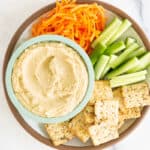






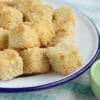



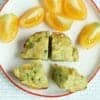

TIP: For my full list of vegetarian and vegan protein sources, head to this master list of vegetarian meals for kids.
Best Tips for Plant-Based Protein and Kids
- Check in with your pediatrician if you’re worried about any nutrient deficiencies or whether you should consider supplements.
- Aim to include a source of protein in each meal, but don’t stress too much since most kids get plenty each day.
- Avoid whole nuts until at least age 4. Consider spreading a thin layer of nut butter on toast, stirring it into oatmeal or a smoothie, trying Peanut Butter Puree, or Peanut Sauce.
- Combine grains with legumes/nuts/beans for higher intake of complete protein over the course of the day. (It doesn’t necessarily need to be at each meal.)
- The protein content in nondairy substitutions for things like cheese, yogurt, and milk ranges widely, compare labels when you’re shopping.
Related Recipes
If I missed any of your favorite plant-based proteins or you have a question about any listed here, please comment below!
This post was first published May 2019.
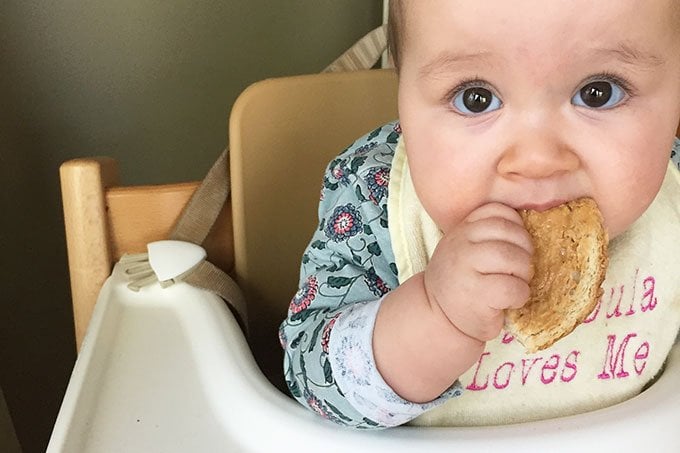
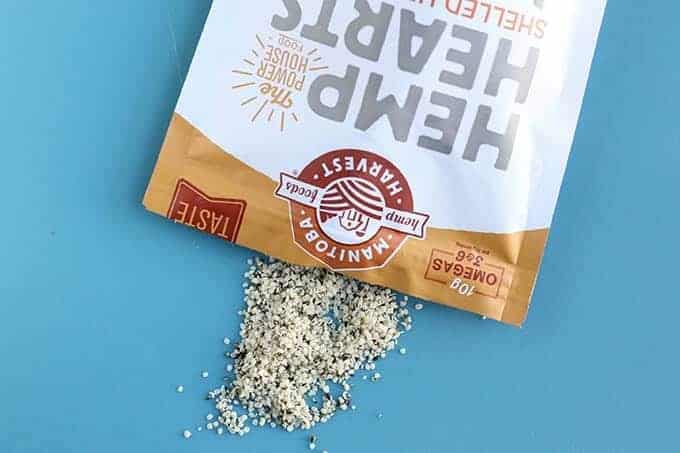
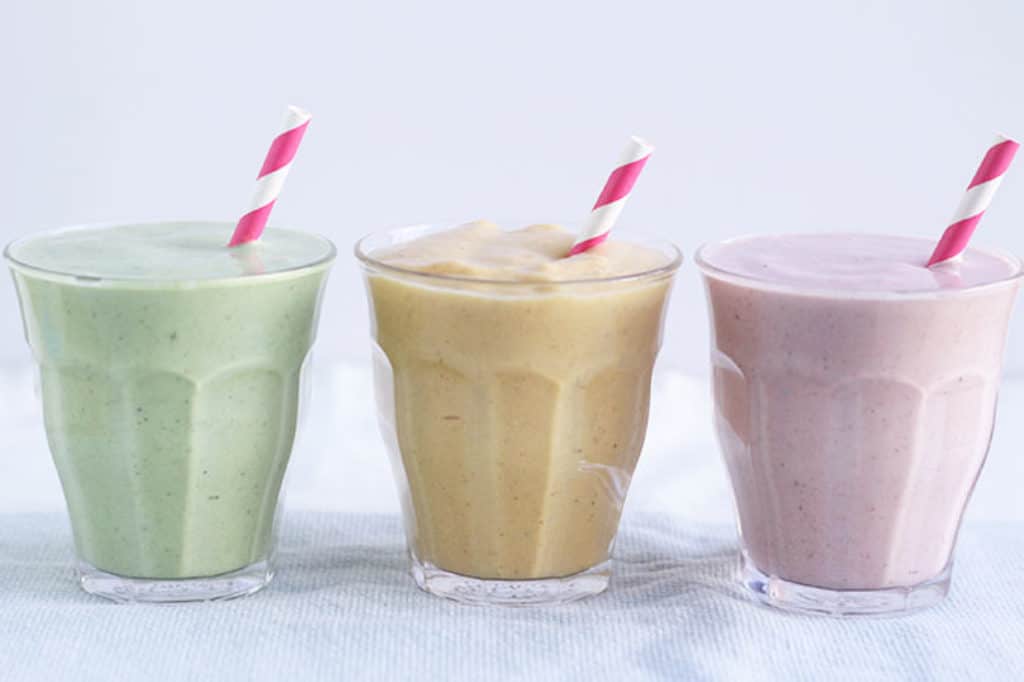
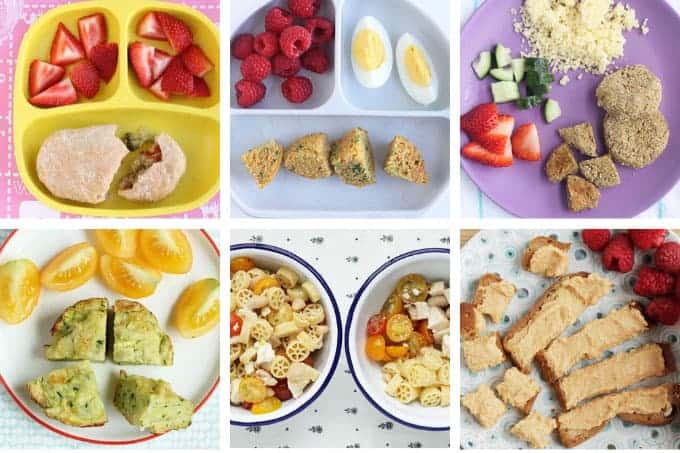


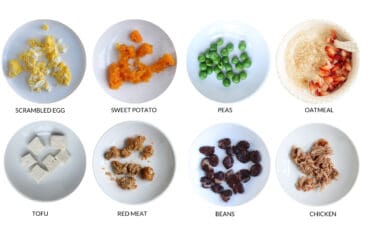
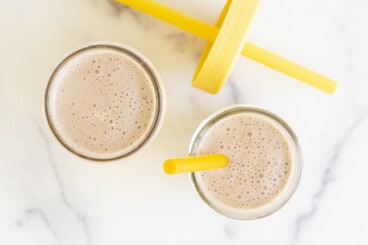
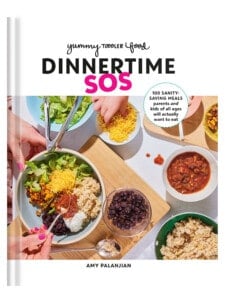
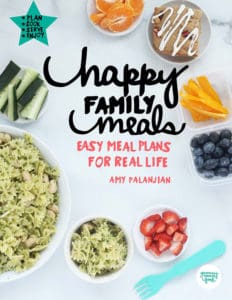

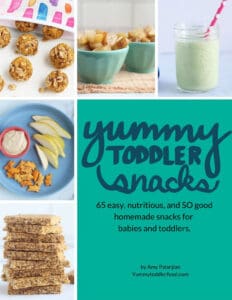















All comments are subject to our Terms of Use.